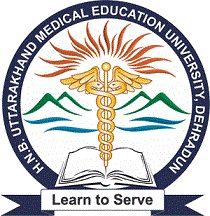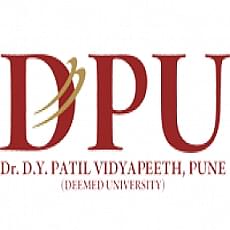Introduction about Ph. D Public Health
Ph.D. Public Health from best college is a doctoral-level degree program designed
to train researchers, educators, and leaders in the field of public health.
This advanced degree provides students with the knowledge, skills, and
expertise necessary to address complex public health challenges, conduct
original research, and contribute to improving population health outcomes.
Here's an
introduction to Ph.D. in Public Health:
Focus on Population
Health: Ph.D. in Public
Health programs focus on the health of populations, communities, and societies
rather than individual patients. Students learn to identify and address public
health issues affecting large groups of people, such as infectious diseases, chronic
diseases, environmental health hazards, and social determinants of health.
Interdisciplinary
Approach: Public health is
inherently interdisciplinary, drawing on knowledge and methods from various
fields such as epidemiology, biostatistics, environmental health, health
policy, social and behavioral sciences, and health promotion. Ph.D. in Public
Health programs provide students with a broad foundation in these disciplines,
allowing them to approach public health challenges from multiple perspectives.
Research and
Scholarship: A key
component of Ph.D. in Public Health programs is original research and
scholarship. Students engage in rigorous research projects, dissertation work,
and scholarly activities aimed at advancing knowledge in the field of public
health. They learn research methodologies, study design, data analysis, and
interpretation of findings to address complex public health issues and
contribute to the evidence base for effective public health interventions.
Specialization and
Concentrations: Ph.D. in
Public Health programs often offer opportunities for students to specialize in
specific areas of interest within the field. Common specializations may include
epidemiology, biostatistics, environmental health sciences, global health,
health policy and management, social and behavioural sciences, and health
promotion.
Teaching and
Education: Ph.D. in Public
Health programs also prepare students for careers in academia and education.
Students gain experience in teaching, mentoring, and advising undergraduate and
graduate students in public health-related topics. They may also have opportunities
to develop and deliver public health curriculum, design courses, and conduct
educational research.
Leadership and
Policy Advocacy: Graduates
of Ph.D. in Public Health programs are equipped to take on leadership roles in
public health organizations, government agencies, non-profit organizations, and
academic institutions. They advocate for evidence-based policies and
interventions to promote health equity, prevent disease, and improve population
health outcomes.
Career
Opportunities: Ph.D. in
Public Health graduates pursue diverse career paths in academia, research
institutions, government agencies, non-profit organizations, healthcare
organizations, and international agencies. They work as researchers, faculty
members, program directors, policy analysts, consultants, and public health
leaders, contributing to the advancement of public health practice and policy
at local, national, and global levels.
Overall, a Ph.D. in
Public Health is a rigorous and comprehensive program that prepares graduates
for influential roles in advancing the health and well-being of populations and
communities. It offers opportunities for intellectual growth, professional development,
and making meaningful contributions to public health research, practice, and
policy.
What is admission process for Ph. D Public Health?
The admission process 2024 Ph.D. in Public Health program
may vary depending on the institution offering the program and its specific
requirements. However, here is a general overview of the typical admission
process for Ph.D. programs in Public Health:
Research and
Identify Programs: Research
and identify universities, colleges, or institutions that offer Ph.D. programs
in Public Health. Consider factors such as accreditation, faculty expertise,
research opportunities, program curriculum, facilities, and location.
Check Admission
Requirements: Review the
admission requirements for each Ph.D. in Public Health program you are
interested in applying to. Admission requirements may vary but commonly
include:
A master's degree
or equivalent in a relevant field such as public health, epidemiology,
biostatistics, environmental health, health policy, social and behavioral
sciences, or a related discipline. Some programs may accept applicants with a
bachelor's degree in exceptional cases.
Minimum GPA
requirements for previous academic coursework.
Standardized test
scores such as the GRE (Graduate Record Examination) or equivalent. Some
programs may waive this requirement or offer test-optional admission.
Letters of
recommendation from academic or professional references who can speak to your
academic abilities, research experience, and potential for success in a Ph.D.
program.
Statement of
purpose or personal statement outlining your academic and research interests,
career goals, and reasons for pursuing a Ph.D. in Public Health.
Resume or
curriculum vitae (CV) detailing your academic background, research experience,
work experience, publications, presentations, and relevant skills.
Writing samples or
research papers demonstrating your research abilities and interests in public
health-related topics.
Proof of language
proficiency (if the program is offered in a language other than your native
language).
Contact Potential
Advisors: Reach out to
faculty members or potential advisors in the Ph.D. in Public Health programs
you are interested in to discuss your research interests and determine if there
are faculty members willing to mentor you and support your research goals.
Prepare Application
Materials: Gather all
required application materials, including transcripts, test scores, letters of
recommendation, statement of purpose, resume or CV, writing samples, and any
other documents specified by the program.
Submit Application: Complete and submit the application form
for each Ph.D. in Public Health program you are applying to. Follow the
application instructions provided by each institution, paying attention to
deadlines and submission requirements.
Pay Application
Fees: Pay any application
fees required by the institutions you are applying to. Some programs may offer
fee waivers for qualified applicants, so be sure to inquire about waiver
options if applicable.
Interview (if
required): Some Ph.D.
programs may require applicants to participate in interviews as part of the
selection process. Prepare for interviews by reviewing common interview
questions and highlighting your qualifications, research interests, and goals
related to public health.
Submit Additional
Documentation (if required):
If requested by the program, submit any additional documentation or materials
required for the application process, such as samples of your academic or
research work.
Wait for Admission
Decision: After submitting
your application, wait for the admission decision from each institution.
Admission decisions are typically communicated via email, postal mail, or
through an online application portal.
Acceptance and
Enrolment: If you receive
an offer of admission, carefully review the terms and conditions of the offer.
If you decide to accept the offer, follow the instructions provided by the
institution to confirm your acceptance and complete the enrolment process,
which may include submitting enrolment deposits and registering for classes.
It's important to
start the application process early and carefully review the requirements and
deadlines for each Ph.D. in Public Health program you are considering. Be sure
to follow the instructions provided by each institution and reach out to admissions
offices or program coordinators if you have any questions or need clarification
on specific requirements. Additionally, establishing connections with potential
advisors and faculty members can strengthen your application and increase your
chances of admission to Ph.D. programs in Public Health.
What is eligibility for Ph. D Public Health?
The eligibility criteria for Ph.D. in Public Health program
may vary depending on the institution offering the program and its specific
requirements. However, here are some common eligibility criteria that are
typically required for admission to Ph.D. programs in Public Health:
Educational
Background:
Most Ph.D. programs
in Public Health require applicants to have a master's degree or equivalent in
a relevant field such as public health, epidemiology, biostatistics,
environmental health, health policy, social and behavioural sciences, or a
related discipline. Some programs may accept applicants with a bachelor's
degree in exceptional cases, but they may require additional coursework or
research experience.
Minimum GPA:
Applicants are
often required to have a minimum undergraduate and/or graduate grade point
average (GPA) to be considered for admission. The minimum GPA requirement may
vary depending on the institution and program, but it is typically around 3.0
on a 4.0 scale.
Standardized Test
Scores:
Many Ph.D. programs
in Public Health require applicants to submit scores from standardized tests
such as the Graduate Record Examination (GRE) or equivalent. However, some
programs may waive this requirement or offer test-optional admission. Be sure
to check the specific requirements of each program you are interested in
applying to.
Letters of
Recommendation:
Applicants are
typically required to submit letters of recommendation from academic or
professional references who can speak to their academic abilities, research
experience, and potential for success in a Ph.D. program. The number of letters
required may vary by program, but it is commonly around three letters.
Statement of
Purpose:
Applicants are
usually required to submit a statement of purpose or personal statement
outlining their academic and research interests, career goals, and reasons for
pursuing a Ph.D. in Public Health. This statement provides an opportunity for
applicants to demonstrate their motivation, passion, and fit for the program.
Resume or
Curriculum Vitae (CV):
Applicants are
often required to submit a resume or curriculum vitae (CV) detailing their
academic background, research experience, work experience, publications,
presentations, and relevant skills. This document provides a comprehensive
overview of the applicant's qualifications and accomplishments.
Writing Samples or
Research Papers:
Some Ph.D. programs
in Public Health may require applicants to submit writing samples or research
papers demonstrating their research abilities and interests in public
health-related topics. These samples provide evidence of the applicant's
research experience, writing skills, and potential for conducting original
research in the field.
Language
Proficiency:
If the Ph.D.
program is offered in a language other than the applicant's native language,
applicants may be required to demonstrate proficiency in the language of
instruction through standardized tests such as the TOEFL (Test of English as a
Foreign Language) or equivalent.
It's important to
note that the specific eligibility criteria for Ph.D. programs in Public Health
may vary from one institution to another, so it's essential to carefully review
the admission requirements of each program you are interested in applying to.
Additionally, meeting the minimum eligibility criteria does not guarantee
admission to a Ph.D. program, as admission decisions are based on a holistic
review of the applicant's qualifications, accomplishments, and fit with the
program.
What is syllabus of Ph. D Public Health?
The syllabus for Ph.D. in Public Health program
can vary significantly depending on the specific focus areas, research
interests, and faculty expertise of the institution offering the program.
However, here is a general overview of the typical components of a Ph.D. in
Public Health syllabus:
Core Courses:
Epidemiology:
Advanced study of the distribution and determinants of health-related states or
events in populations, with an emphasis on research methods, study design, data
analysis, and interpretation of epidemiological findings.
Biostatistics:
Advanced statistical methods and techniques used in public health research,
including regression analysis, survival analysis, longitudinal data analysis,
multilevel modeling, and meta-analysis.
Research Methods in
Public Health: Advanced research methodologies and study designs used in public
health research, including observational studies, experimental designs,
qualitative research methods, and mixed methods approaches.
Public Health
Policy and Management: Examination of public health policy development,
implementation, and evaluation processes, as well as principles of health
systems management, organizational behaviour, leadership, and strategic
planning.
Environmental
Health Sciences: Study of environmental factors that impact human health,
including air and water quality, environmental toxicology, occupational health,
climate change, and environmental justice.
Social and Behavioural
Sciences in Public Health: Exploration of social and behavioral determinants of
health, health behaviour theories, health promotion strategies, community-based
participatory research, and interventions to address social determinants of
health.
Advanced Topics in
Public Health: Elective courses covering specialized topics in public health
research, policy, and practice, such as global health, infectious disease
epidemiology, chronic disease prevention, health disparities, health economics,
and health informatics.
Research Seminars
and Workshops:
Research Seminars:
Regular seminars or colloquia where students present their research findings,
discuss current topics in public health research, and engage with faculty and
peers in scholarly discussions.
Research Workshops:
Workshops focused on specific research methodologies, data analysis techniques,
grant writing, scientific communication, manuscript preparation, and other
research-related skills.
Dissertation
Research:
Dissertation
Proposal Development: Development of a research proposal outlining the research
questions, objectives, study design, methods, data collection procedures, and
analysis plan for the doctoral dissertation.
Dissertation
Research: Conducting original research, data collection, analysis,
interpretation of findings, and writing of the doctoral dissertation under the
supervision of a faculty advisor or dissertation committee.
Teaching and
Mentoring:
Teaching
Assistantship: Opportunities to serve as a teaching assistant for undergraduate
or graduate courses in public health, gain experience in teaching, mentoring,
grading, and course management.
Mentoring:
Mentoring and advising undergraduate or graduate students, junior colleagues,
or research assistants in public health-related topics, research projects, and
professional development.
Professional
Development:
Professional
Development Seminars: Seminars or workshops focused on career development,
academic writing, presentation skills, grant writing, academic publishing,
networking, and job search strategies.
Conference
Attendance: Attendance at conferences, symposiums, or professional meetings in
public health or related fields to present research findings, network with
peers and experts, and stay updated on the latest developments in the field.
About us : Universityfindo
provides you a platform where you fulfil your dreams and takes a step forward
towards in your life . We provide you all courses with affordable fees
and safe environment. For more information contact us on our website : universityfindo.com .












